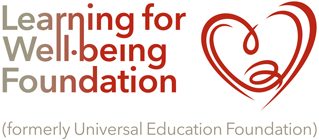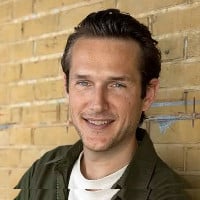Symposium Unfolding Human Potential * A dialogue on core qualities and practices needed in education
Op 8 en 9 februari 2017 vond in Driebergen het internationale symposium Unfolding Human Potential plaats. NIVOZ was met Learning for Well-being Foundation organisator van deze tweedaagse. Met 120 genodigde gasten werd aan de hand van onderwijspraktijk gesproken over fundamentele vragen rondom onderwijs in relatie tot het potentieel van (jonge) mensen en de samenleving. Wetenschappers, bestuurders, beleidsbepalers, maar ook schoolleiders en leraren schoven aan de hand van vier hoofdthema's aan tafel. De voertaal was Engels.
The role of education in the development of our societies must urgently be reconsidered. At stake are our liberal democracies, the responsibilities and connectedness experienced by people and the sustainable well-being of our society as a whole. Education plays an existential role.
The role of education in the development of our societies must urgently be reconsidered. At stake are our liberal democracies, the responsibilities and connectedness experienced by people and the sustainable well-being of our society as a whole. Education plays an existential role.
What’s required?
We are convinced that this requires a shift in education — away from standardized instruction models where ‘one size fits all children,’ and towards pedagogical approaches that enhance diversity and foster social relationships within which people feel connected, engaged and responsible. Such a paradigm shift asks for a change in the relation between knowledge and practice and will require a new language.
The symposium in Driebergen was – rather than search for applications of scholarly knowledge – starting from questions about the nature of interaction and learning, as generated by examples of inspiring practice with regard to the first three questions and with a panel discussion to address the fourth question. People participated in round table discussions along with other key actors in educational transformation, and these discussions were be synthesized by table hosts and knowledgeable speakers.
What could be the outcome?
The symposium had no roadmap, no blueprint or simple solution to the problems tabled. We hope the outcome would be — above all — that participants will gain new insights (and questions) in order to carry on the conversation about education in each of their familiar working contexts, roles and responsibilities, with a broader perspective. We also hope that it will become clear what it is that unites us when it comes to good education.
It was an event by invitation only, where some 120 people from within and around the field of education will gather. We had people coming from the Netherlands, all over Europe and Palestine. The symposium was conducted in English.
International academic experts
We did welcome a wealth of international academic experts, behind the link you will read more:
- Prof Ferre Laevers (University of Leuven, Belgium)
- Prof Michael Fielding (Emeritus Professor of Education, UCL Institute of Education at London, England, UK)
- Prof Colleen Mclaughlin (University of Cambridge, UK)
- Prof Paulien Meijer (Radboud University, Nijmegen)
- Dr Tone Saevi (NLA University College Bergen, Norway)
- Linda O’Toole (Universal Education Foundation, Brussels)
- Prof Edith Hooge (University of Tilburg)
- Prof Günther Opp (Martin Luther University, Halle, Germany)
- Prof Rob Martens (Open University of the Netherlands)
- Prof Arjen Wals (Sustainability and Education, Wageningen, UNESCO-chair).
Examples of educational Practice
Starting points of the dialogues were a set of examples of educational practice.
Click on the name and you will find a video
De Wittering.nl (Rosmalen)
Laterna Magica (Amsterdam)
Titus Brandsmalyceum (Oss)
RVC De Hef (Rotterdam)
HAN (Hogeschool Arnhem/Nijmegen)
Ecole Singelijn (Brussels, Belgium)
Escola Marina (Montgat, Barcelona, Spain)
Post-symposium communication and some weblinks
- Reflections of participants for continuing the dialogue,
- Videotalks with some of you,
- Audiotracks and transcripts for relistening/reading to all public reflections,
- Pictures and illustrations of the 2-days by an artist
- Table-conversation by Jasja van den Brink and Annonay Andersson
- Videoclips and interviews by Carm Barten.

About Learning for Well-being Foundation
The Learning for Well-being Foundation envisions inclusive and supportive societies where everyone realizes their unique potential throughout their life. The Learning for Well-being Foundation is a private operating foundation, registered in the Netherlands as a not-for-profit organization. Our team and associates are dispersed across Europe, Middle-East and the United States, with our office and activity focal point in Brussels.
Through co-creative partnerships we cultivate capacities in individuals and groups to make decisions and take actions that serve children and adults who support them. Our aim is to bring together a critical mass of partners to engage in mutually reinforcing activities, sharing a common language that places holistic well-being at the heart of all endeavours.
https://www.learningforwellbeing.org/




Delen: